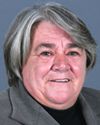Mr. Speaker, I would like to take the opportunity before the House of Commons to express my support for Bill C-18, legislation which I believe will enhance the safety and security of all Canadians, especially those who live in border communities across this land.
This bill will strengthen the enforcement role of customs officers by extending the scope of their powers so they can arrest and detain individuals suspected of Criminal Code offences. I am familiar with the work of customs officers. I have met many of these people across this country over my lifetime. In the process I have been enormously impressed with the scope of their duties and the professionalism with which they carry out their job.
I am also aware of the fact that on many occasions their efforts to protect the safety of Canadians have been hampered by the legal limitations of our Customs Act.
This legislation closes a longstanding gap in our ability to address at the border criminal activities such as impaired driving, child abduction and possession of stolen goods. It will also allow us to deal with individuals who are the subjects of outstanding arrest warrants. There is a clear need for our customs officers to be able to stop suspected criminals at the border before they have a chance to enter our country.
My region of southern Ontario has four major land border crossings which process 40% to 45% of traveller and commercial traffic coming into Canada. A lot of the criminal activity that has been observed by customs officers has occurred at these major ports and at others across the land.
Customs officers have witnessed behaviour such as impaired driving that has resulted in tragedy. They and their union have pointed out that such tragedies are preventable if the scope of the customs officers' powers is broadened to enable them to arrest and detain suspects until the local law enforcement can properly and fully respond.
Mr. Speaker, if you ask Canadians what distinguishes Canada from most countries, they will tell you that Canada is much safer and less violent. This is the type of Canada that Canadians want and the type of Canada this government will strive to maintain. We believe that all Canadians have a right to live in a peaceful and safe community and they expect us to do what we can to keep these communities safe.
Bill C-18 is one way that we can meet those expectations, by giving our customs officers the power to stop criminal activity before it reaches our communities. Clearly this bill will allow customs officers to do more value added work that makes a real difference. At the same time it will not diminish Revenue Canada's ability to continue with major initiatives that are allowing Canadians to seize opportunities created by liberalized trade and travel. It will also enhance and protect from any threat to our social or our economic well-being.
These initiatives are allowing the department to free up resources to concentrate on high risk traffic with more effective enforcement to control weapons and drug smuggling, as well as the illegal movement of people across our borders.
Customs officers already have the power to detain and arrest individuals suspected of customs offences under the Customs Act. For instance our customs officers deal with serious offences such as the smuggling of drugs and weapons.
Bill C-18 capitalizes on customs' unique position at our border points to act as a first response against crime. This means customs officers will be able to legally hold suspects until law enforcement agencies can intervene. Criminals will be dealt with at the right time, before they enter our country. By expanding the scope of customs officers' powers, Bill C-18 will greatly enhance the safety of citizens of border communities and in turn will contribute to the protection of all Canadians wherever they live in this country.
This legislation is not intended to replace police. What it does is it closes the longstanding gap by enabling our customs officers to act as a bridge to the law enforcement community. Customs officers will arrest and detain suspects, who will be turned over immediately to the police authorities for follow-up as they see fit. The provinces will continue to be responsible for the enforcement of the Criminal Code. Now customs officers will be able to assist them by providing the first response service.
This legislation is not about duplication. Customs officers will not investigate Criminal Code offences nor will customs officers be responsible for processing individuals for Criminal Code offences. Furthermore, customs officers will only be allowed to use these new powers while they are on duty at the points of entry.
The benefits of Bill C-18 to law enforcement in this country are very clear. That is why police officers, police chiefs and attorneys general all know that this bill enhances the ability to fight crime. As a result this bill has the support of police forces, police chiefs, provincial attorneys general, victims rights groups, the customs union and customs officers themselves. It has broad support because it makes sense. It is the right thing to do.
Bill C-18 is not broadening the scope of powers to customs officers who are untried and untested. Rather, the legislation entrusts these powers to a group of women and men who prove their value to this country every day as skilled, dedicated professionals.
The power to arrest is not new for customs officers. They have been arresting people for serious offences such as drug smuggling for decades. They have been doing so with professionalism and with respect for the rights of those involved. That will not change. Customs officers will continue to carry out arrests in a manner that respects the Canadian Charter of Rights and Freedoms. The fact is this bill supports the efforts of the police and those involved in both law enforcement and the judicial system.
Once Bill C-18 is passed it will take six to nine months to implement.
The time will be used to renovate facilities, to designate officers and train them on the identification of Criminal Code offences and also on important aspects of the law, especially as it relates to the charter of rights and freedoms.
Customs officers will have the training they need to ensure that they act fairly and responsibly and within the confines of the law in carrying out these new responsibilities under Bill C-18.
The broader role of this bill envisions for our customs officers that these provisions will be carried out by probably about 2,500 officers who will be specially designated and trained. They will be drawn from those officers who are in regular contact with the travelling public.
Student customs officers will not have these powers. They will continue, however, to work with the permanent customs staff and designated officers who will be on hand to respond to the Criminal Code situations.
Canadians can also be assured that these designated customers officers will receive additional training to ensure that they act fairly, responsibly and within the confines of the law in carrying out these new functions and duties. No custom officer will be put in a position of having to carry out their new responsibility without the appropriate training. That would be unacceptable to this government. Our border communities and indeed all Canadians deserve nothing less.
We already train our customs officers in arrest procedures, the charter and other issues that relate to the powers of arrest. We will expand this excellent training program to cover areas such as the identification of Criminal Code offences and related court jurisprudence. In addition, this training will be coupled with a clear accountability structure which will outline situations calling for first response action.
I know that for some there is still the issue of whether to arm customs officers. It is not an issue for this government. We are firm in our belief that our officers should not carry weapons. The safety of customs officers is something we care deeply about. Customs officers already encounter dangerous people such as drug and weapon smugglers. They have never needed guns to effectively handle these types of situations. This is because, like police officers, our officers are expected to assess the safety implications of any situation. We want to avoid violence, and the best way to do so is to use common sense, not more weapons.
We are committed to supporting the work of our officers by giving them the additional training on the use of force for personal protection and to compel compliance within the law. Furthermore, by the time this bill is implemented, the department will provide protective gear to officers who request it. On those occasions when customs officers have to confront a dangerous person, their training and common sense will dictate that they avoid placing themselves or the public in danger. If they assess a risk to their safety, they will be expected to contact the police and withdraw from the situation. In other words, common sense and training will work hand in hand to determine the smart and the smartest response in each case.
I will deal now with the cost of this initiative. We have estimated that planning and start-up costs will be approximately $5.5 million. This includes the cost for training officers and for renovating facilities so that we may properly detain suspects until law enforcement agencies arrive and can intervene. After implementation, the ongoing costs will be minimal.
Bill C-18 will do a number of things. First, it will close that longstanding gap and strengthen customs officers' ability to assist in law enforcement in this country. Second, it will make use of the unique position of customs at the border to stop criminals before they enter Canada. Finally, it will make efficient use of our law enforcement resources to enhance the safety and security of all Canadians.
This bill also has to date the support of all parties in this House, a rare situation and one that speaks to its importance. We are gratified, and I want to stress that, by this support. We also appreciate the input from members of this House as well as the groups and individuals who have offered their help and support. Your ideas and suggestions will be very valuable in the implementation of this legislation.
Customs officers and their union deserve special praise. They identified an opportunity to improve the safety of Canadians and have worked very hard to make this bill a reality. On behalf of the minister I thank all members for allowing us to do what is right for Canadians.
Rest assured that during implementation we will continue to consult with our partners, both within government and outside, to ensure that this bill once implemented meets expectations.
In conclusion, by supporting Bill C-18 we demonstrate to all Canadians that when it comes to their safety and security we will not compromise. This bill serves notice to those individuals who pose a threat to the safety of our communities that criminal activity will not be tolerated.
In approving Bill C-18 we are recognizing the important role of Canada's customs officers at our border and demonstrating to all Canadians that we are prepared to do what is right to enhance the safety and security of communities across the country.

















































